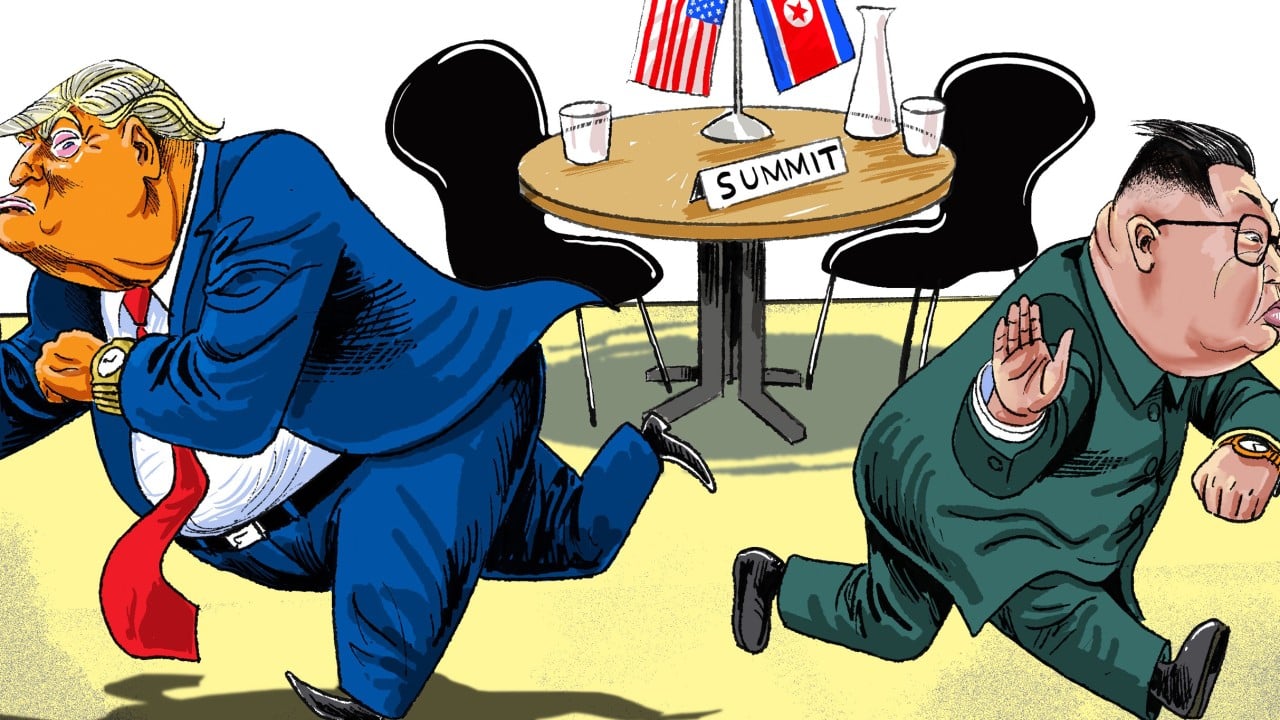Ahead of US President Donald Trump’s coming visit to South Korea, speculation is mounting about a possible meeting with North Korean leader Kim Jong-un. CNN reported that Trump administration officials have privately discussed arranging such an encounter. Meanwhile, the suspension of trips to Panmunjom next week has only fuelled rumours that a repeat of the dramatic 2019 summit is imminent. Back then, Trump tweeted an invitation to Kim within 48 hours before they met at the truce village.
Advertisement
Yet despite Trump’s evident enthusiasm and Kim’s stated openness to talks, albeit with the caveat that Washington abandon its denuclearisation demands, a hastily arranged summit at this juncture could prove counterproductive to long-term Korean peace efforts.
This year’s geopolitical landscape bears little resemblance to the circumstances that enabled Trump’s first-term summits with Kim. Perhaps most significantly, Kim now negotiates from a position of considerable strength rather than isolation. Burgeoning military partnership with Russia has altered North Korea’s strategic calculus, providing Pyongyang with economic lifelines, diplomatic cover and technological assistance that reduce its desperation for an accommodation with Washington.
South Korea’s role in promoting US-North Korea diplomacy has also dramatically weakened since Trump’s first term. Inter-Korean relations have deteriorated to their lowest point in years, with virtually no ongoing communication between Seoul and Pyongyang.
This absence of a functioning channel between the two Koreas severely limits South Korea’s ability to serve as a mediator or interlocutor, a role it played effectively during the lead-up to previous summits. Seoul’s diminished leverage means that even if it wanted to encourage a Trump-Kim meeting, it has few tools at its disposal to shape the conditions for one.
Advertisement
Kim himself has learned valuable lessons from his previous engagements with Trump, particularly the collapse of the 2019 summit in Hanoi, Vietnam, when talks broke down and both leaders walked away empty-handed. That experience taught Pyongyang that spectacular photo opportunities and warm personal rapport between leaders cannot substitute for carefully prepared diplomatic groundwork and realistic negotiating positions.

